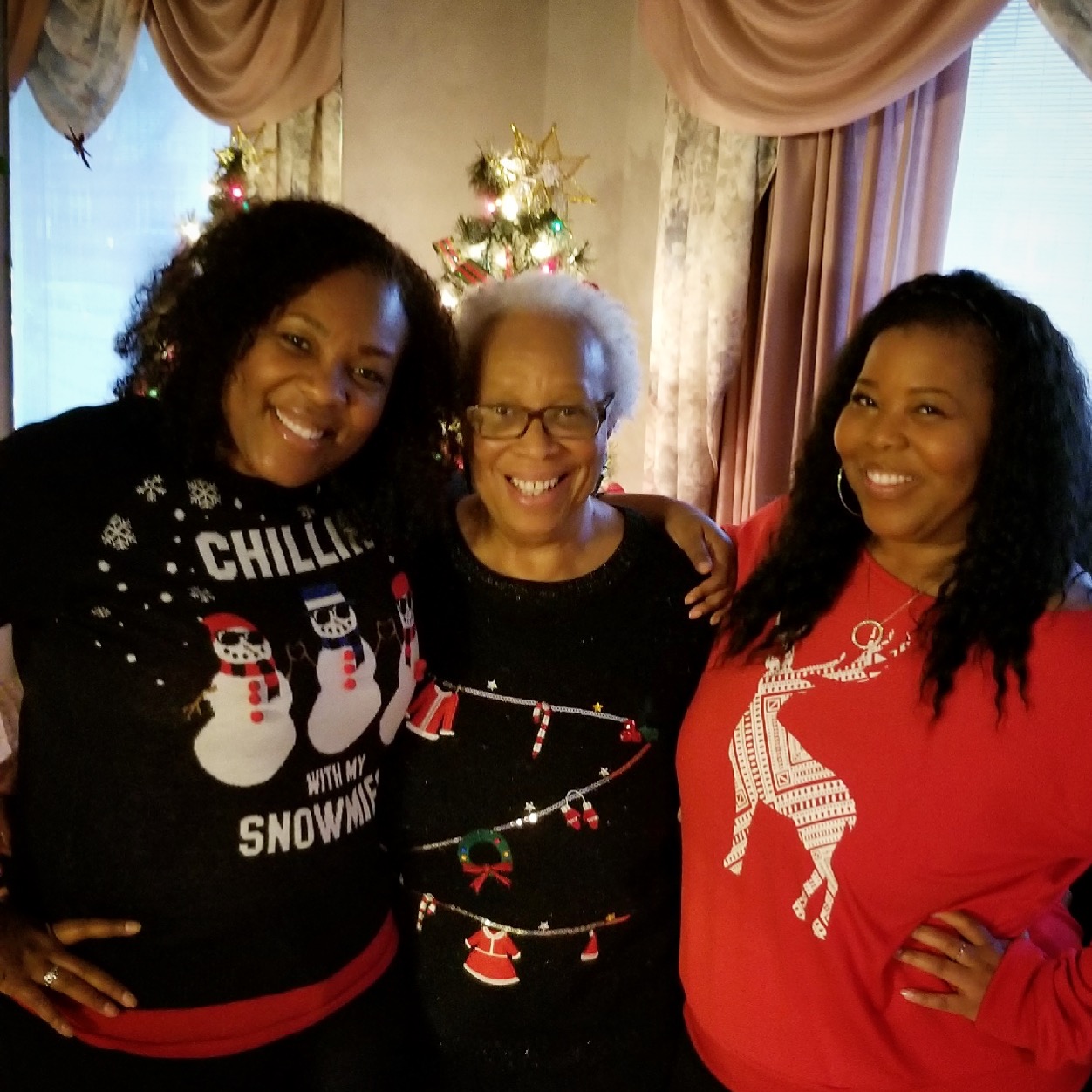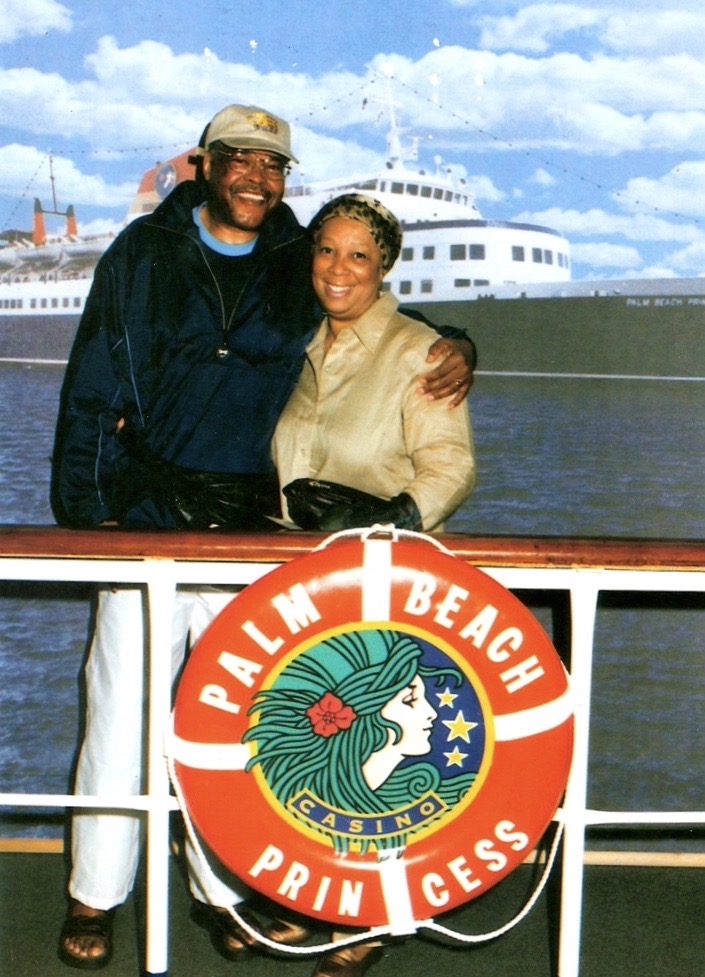Actress Taraji P. Henson has been one of the few Hollywood figures to open-up about her challenges in dealing with menopause. Her vulnerability made me take a step back and reflect on the many women in my life within the menopausal age bracket. One of the first questions that came to mind was, “Am I doing all that I can to support or lend a helping hand during this difficult time in their lives?” In being honest with myself, the answer was, unfortunately, “No.”

Oddly enough, as my curiosity heightened, my mentor mentioned her mother, Anne Cannon-Wilson, penned an entire book on the topic. She wanted to share her story, a familiar tale for most women about what to expect when going through menopause, while also offering ways your spouse or loved ones can help you navigate one of the most challenging times in your life. From vaginal dryness, depression, and weight gain, to hot flashes and even suicidal thoughts, the mom of two admits it was not an easy journey.
She continued, “Because of my connection with our higher power, I was able to make it through. When I experienced negative thoughts, I would make my mind go toward positive thinking. If you’re not careful, once you get to a dark place, you can stay there. It’s not good, it will take you down, but I would not allow that to happen.”
Although every woman’s experience is different, one constant is certain that having a support system is vital to a woman’s health, happiness, and overall well-being during this life change. In her 45 year marriage to her late husband, Don, she recalled the love and compassion he selflessly showed her during the sleepless nights, hot flashes, and mood swings.
Ultimately, long after the wedding day, the honeymoon phase will fade, and life’s highs and lows will begin to take place. Which is an eye-opening message on the importance of finding the right partner who will make every effort to understand you in both the good and bad times.
“I wrote this book because of you,” a dedication to her husband’s patience, commitment, and devotion during that transitional time. Read on for a candid chat with Anne Cannon-Wilson to discover the many Ways To Help Your Mate Through Menopause and the powerful role your significant other plays. I assure you every woman and man, young or old, will definitely learn something new.
BlackLove.com Related Articles:
Aged to Perfection: What Terry McMillan Wants You to Know About Sex, Love and Life After 60
Taking Off My Cape: Letting Go of the Superwoman Syndrome
A Cry for Help: My Silent Battle With Suicide and Depression
BlackLove.com: I’m taken aback because I’ve always associated the term menopause with someone older in age surpassing their 40s.
Anne Cannon-Wilson: And that’s where we make our mistake. That’s why I could not wrap my mind around what was going on with me because here I am in my 40s, and I shouldn’t be going through menopause. But again, I didn’t know what the symptoms were or what to expect. And some people start in their late 30s, but it all depends on your hormones. It’s not a particular age that you go through it because even people in their 70s say they’re going through menopause. Since there is not an exact age, the main thing is for you to be prepared.
BL.com: So, how can we better prepare ourselves for our bodies’ changes during this stage in our lives?
ACW: To prepare yourself, you need to research and find out what all the symptoms are; diet and exercise are just as important, especially as far as helping you to have a better quality of life. It’s a full-time job, and it’s really up to you to decide. Are you going to fill your body with medications that don’t always work, or are you going to try and do it naturally? That’s what I did when it came to my menopausal period. I just went natural, and in the long-run, it has worked.
BL.com: How can someone support a loved one through menopause?

ACW: You have to be a good listener and show that person you care about what they’re going through and spend quality time with them. That will make all the difference in the world! We need the support from our families, friends, and children.
BL.com: Looking back and having gone through this experience yourself, in what ways do you wish you extended a bit more grace to your mother during that journey in her life?
ACW: I was young, and I had no idea what she was going through because there were certain things that we did not talk about with our parents. Honestly, I don’t think she knew back then what she was experiencing, either. They didn’t know what was going on with their bodies. All they knew was that they were experiencing a change but couldn’t quite articulate the “why” behind it.
Had I known, I would have been more concerned about what she was going through. I would’ve been more sensitive to how she was acting and extended more compassion. I regret it today that I was not there for her the way she needed me to be, especially now that I know. Sometimes people go through it worse than others. I was in a deep depression, and it was not a pretty thing.
BL.com: Let’s chat about your late husband. What were some of the things he got right when trying to lend support as you navigated this transition?

ACW: He always appeared to know when I was going through pain. I didn’t have to say anything. He would express love languages in different ways. For instance, one morning, I was on my way to work. I went to the garage, opened the car door, and there was a rose on my dashboard. That made my day because I didn’t expect it! He knew I liked attention as far as being pampered, and he made sure to go the extra mile during that time.
Sometimes he would give me a gift card from a spa and say, “Pick a date and go. Please pamper yourself the whole day.” That made such a huge difference to know he was thinking of me and wanted me to be in a good place. When it’s all said and done, he was just there. On a scale of one to 10, he was truly about an eight.
BL.com: What advice or tips can you offer menopausal women to talk to their partners about the changes that may occur or currently happening in their everyday lives?
ACW: Open communication is the first step. You have to let them know how you feel because if you don’t, they won’t know. They’re not going to know unless you talk to them. Don’t leave anything out! With menopause, sometimes things can just happen to you in the spur of the moment. I could be sitting excitedly, and then suddenly, this dark cloud would come over me. Sometimes my husband and I would be in the bed, and I would be there fidgeting. He would ask, “What’s going on with you?” My only response was, “I don’t know.” To comfort me, he would put his arm around me and hold me tight, and before I knew it, my mood instantly changed, and I was sound asleep.
BL.com: Was there a time you felt you were putting too much pressure on your husband?
ACW: Absolutely, because it seemed the depression was happening all of the time. I needed to talk frequently, and at some points, I felt like, “Oh my, I know he’s getting sick of me,” but he never said it. I think that’s why the man needs to know the power he has. If he’s willing to give that time, energy, and attention to his mate, it helps alot. It’s nothing like the consolation of knowing you have this person who loves you and cares enough to try and help you navigate this thing. Those feelings of reassurance sends a rush through your whole body!
Please click here for more information or to grab your copy of Ways To Help Your Mate Through Menopause.















JOIN THE CONVERSATION